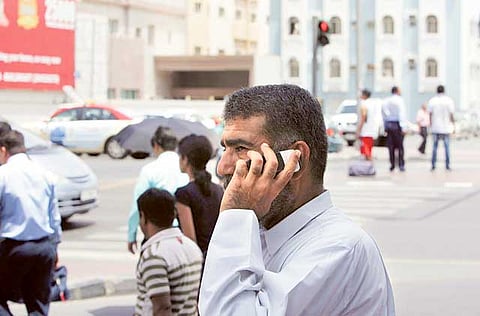Consumers to gain from portability plays
Local telcos need to come up with sharp campaigns to retain and win subscribers

With the introduction of mobile number portability (MNP), the UAE’s telecom sector has finally caught up with more developed markets in offering greater choice to consumers. Implementation of the MNP globally has been driven by three elements — a drop in market prices, facilitate market competition and raise consumer welfare.
By end 2012, 70 countries had implemented MNP, including Egypt, Pakistan and India. While the advent of a second telco — du — infused a breath of fresh air into the category a few years ago, MNP is likely to further invigorate the sector by increasing the level of competition. A survey by AMRB among 500 mobile phone subscribers in UAE provides a few pointers on how telcos could leverage this opportunity:
* Need to create more buzz. Among those surveyed, awareness of MNP was around 60 per cent, which means two-fifths of are still not aware of the concept. There is thus a need to enhance efforts to inform.
* Interest in MNP likely to differ by ethnic group. When exposed to the concept, around a fourth evinced interest in utilising the service. The interest was highest among expat Arabs (33 per cent), followed by Asians (22 per cent), and much lower among Emiratis and Westerners. This means telcos would need to tailor the MNP offering to target specific user segments.
* Subscribers with longer time-on-network are more vulnerable. Subscribers who have been with a service provider for over two years showed a somewhat higher inclination of shift to the other. These are likely to be subscribers with higher ARPU (average revenue per user) and hence telcos need to try and retain this base.
* Telcos need to customise their value proposition. There do not seem to be major differences in interest for the competing service provider. Among current users of Etisalat and du, around 22-23 per cent of subscribers of both evinced an interest in the competition. However, it is interesting to note that the drivers of interest tend of be different.
The key driver for du users to consider Etisalat is “better network coverage”, while that for Etisalat users considering a move to du is “better prices and packages”. While customer service did not emerge as a differentiator for either, a higher proportion of Etisalat users mentioned “combined voice and data plans” as one of the reasons for wanting to move to du. Hence, each operator needs to design their value proposition based on core strengths.
* Porting time and charges are key. Success or failure of MNP will ultimately depend upon the time taken to change from one telco to the other, as well as the switching cost involved. While this may largely be dictated by the TRA, the telco able to provide a more efficient process and better value is likely to gain more.
While the UAE’s telco market is poised for significant churn in the near term, over the longer horizon, introduction of MNP is a positive step that would lead to greater competition between service providers and ultimately benefit consumers.
— The writer is associate vice-president at the research consultancy AMRB.



